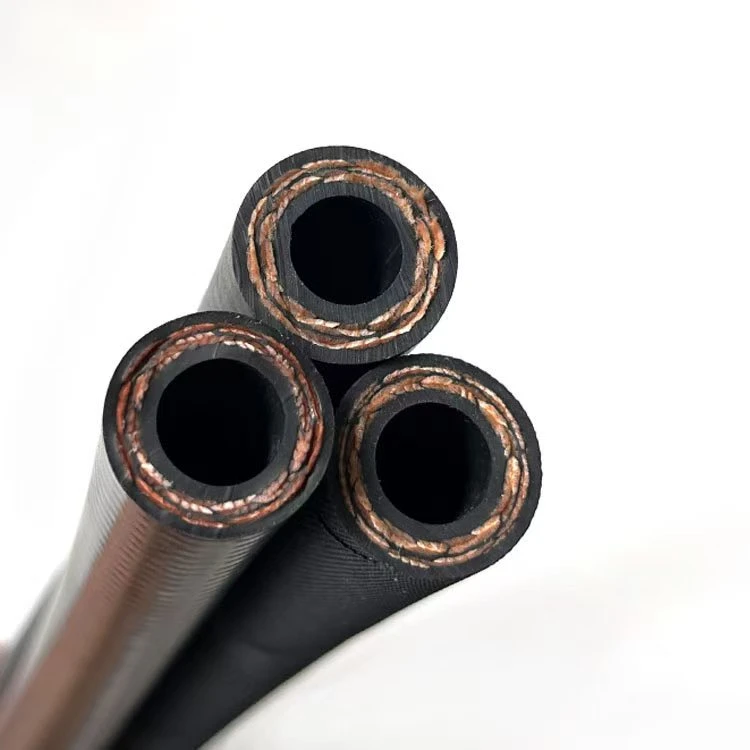fuel gas hose
Dec . 04, 2024 21:05 Back to list
fuel gas hose
Understanding Fuel Gas Hoses Importance, Types, and Safety
In the world of industrial applications, fuel gas hoses serve a critical function in ensuring the safe and efficient transfer of gas. Whether in manufacturing plants, construction sites, or service stations, these hoses are integral to operations that rely on natural gas, propane, or other fuels. Understanding fuel gas hoses, their types, and safety considerations is essential for anyone working in industries where these systems are prevalent.
What Are Fuel Gas Hoses?
Fuel gas hoses are specially designed tubes that convey gases from one point to another. They are built to withstand the pressure and corrosive nature of gases like propane and natural gas while also ensuring that leaks are minimized. These hoses are typically made from durable materials such as rubber, thermoplastic, or a combination of specialized polymers that provide flexibility and strength while resisting wear and tear.
Types of Fuel Gas Hoses
There are several types of fuel gas hoses, each suited to particular applications. The most common types include
1. Rubber Fuel Hoses These are widely used in many industries due to their flexibility and resistance to heat. They are often found in automotive applications, ensuring that fuel is delivered safely from the tank to the engine.
2. PVC Fuel Hoses Polyvinyl chloride (PVC) hoses are lightweight and resistant to many chemicals. They are ideal for low-pressure gas transport and are commonly used in residential settings.
3. Thermoplastic Fuel Hoses Unlike traditional rubber hoses, thermoplastic hoses offer excellent chemical resistance and can operate at higher temperatures. They are commonly used in industrial applications where performance and durability are critical.
4. Reinforced Hoses These hoses are constructed with additional layers of material to provide extra strength and resistance against high pressure. They are essential in applications where the risk of rupture is significant.
5. Specialized Hoses In some cases, specific industries may require hoses that meet unique standards. For example, food-grade hoses for transferring gases used in food processing or hoses that can withstand extreme temperatures.
fuel gas hose

Safety Considerations
When dealing with fuel gas hoses, safety cannot be overlooked. Here are some essential safety tips
1. Regular Inspections It is crucial to regularly inspect hoses for signs of wear, such as cracks, leaks, or bulges. Any damaged hose should be replaced immediately to prevent accidents.
2. Proper Storage Hoses should be stored in a cool, dry place away from direct sunlight to prevent degradation. Coiling hoses properly can prevent kinks and other damage.
3. Correct Installation Ensure that hoses are installed according to the manufacturer’s specifications. Using the wrong fittings or improper connections can lead to leaks and potentially hazardous situations.
4. Pressure Testing Before using hoses in high-pressure applications, conduct pressure tests to ensure that they can handle the workload without failure.
5. Training and Awareness Anyone working with fuel gas hoses should be trained on their safe handling and aware of the potential dangers associated with fuel gases.
6. Use of Protective Equipment While working around fuel gas hoses, wearing appropriate personal protective equipment (PPE) is recommended to protect against accidental exposure.
Conclusion
Fuel gas hoses are a vital component in many industrial and residential applications. Their proper selection, installation, and maintenance can significantly impact safety and efficiency. Understanding the types of hoses available and adhering to safety protocols will help ensure the safe transportation of gases and minimize the risk of accidents in the workplace. As industries continue to evolve, the materials and technologies used in fuel gas hoses will also advance, promising even safer and more efficient solutions for the future.
